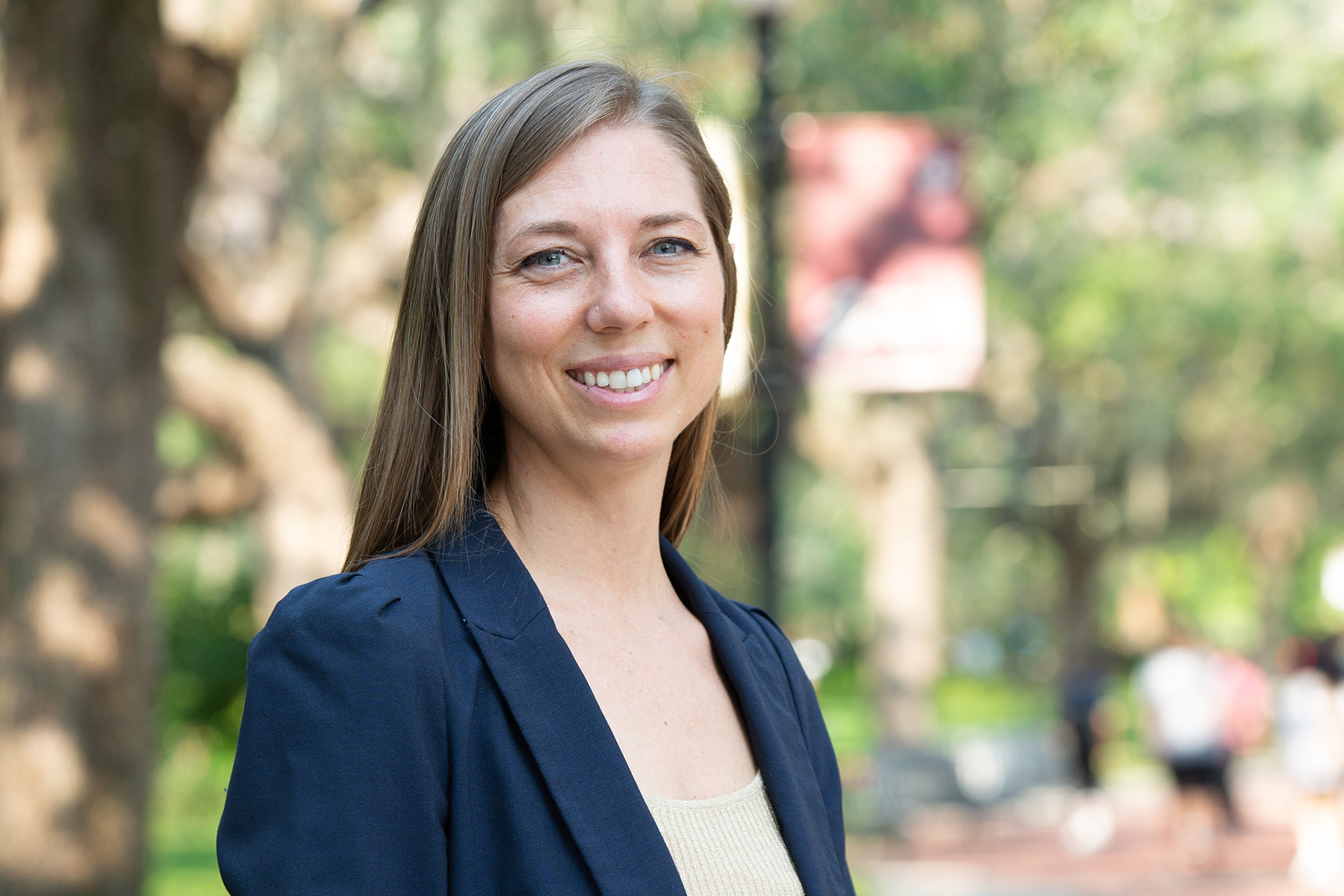
Colleen Harmeling, a Florida State University College of Business researcher, points to photo filters, overly edited photos and other distortions of user-generated content as impediments to consumer trust. In turn, they are potential barriers to the performance of products that users present and discuss online.
Harmeling, FSU's Dr. Persis E. Rockwood associate professor of marketing and the co-director of the doctoral program's major in marketing, argues that consumers who rely on blog posts, online reviews, testimonials and other user-generated content to inform their purchase decisions require digital platforms that minimize suspicion of missing or misrepresented content.
"The availability of certain features, including photo filters or the ability to delete content once you've posted it, dramatically impacts whether user-generated content affects brand performance or firm performance," Harmeling said. "Those features don't even have to be used to affect product performance. The mere presence of such features in a digital space affects consumer trust in that content for their purchase decision."
Harmeling's new study with Rachel Hochstein, an assistant professor of marketing at the University of Missouri-Kansas City, and Taylor Perko, who served as an FSU research assistant while earning her MBA from the College of Business, appears in the Journal of the Academy of Marketing Science.
The authors assert that their findings reinforce the notion that digital platforms "serve as custodians of trust in modern society."
Harmeling credits the study largely to Hochstein, who studied under her as a marketing doctoral student at FSU before landing her faculty post. Hochstein compiled a database of nearly 20 years of digital platform innovations, recording the timing of changes in user features such as photo filters across online platforms, including Facebook, Amazon and Twitter, now known as X. She combined the database with data from 77 published studies on the effects of consumer-generated content on company performance.
Harmeling called it "a very significant study" that, "I think has profound implications for how and what we trust as consumers, for how marketers engage with their consumers and how to increase the trustworthiness of the information that's being circulated about the brand."
"We're very proud of Colleen, Rachel and Taylor's work to develop strategies that promote trust and offset consumers' concerns in a setting where it's needed most," said Michael Brady, director of Dr. Persis E. Rockwood School of Marketing and the Bob Sasser Professor of Marketing in the FSU College of Business. "Their study exemplifies our world-renowned faculty's cutting-edge research, which asks crucial questions and seeks achievable solutions for the benefit of students, consumers and industries."
The results of the study showcased how those features influenced trust, distrust and purchasing decisions.
"We found that trust can be violated if people believe that their digitally presented content isn't what unfolds in reality-that's where the photo filters come into play-or if there is missing data from their observable example," Harmeling said. "If we suspect missing data, then we start to call into question whether the online user's experience with a product is reflective of the population."
The researchers wrote that their findings also carry implications for social media influencers, who might want to avoid using photo filters or overly edited photos and videos. "Focusing instead on live videos or real-time 'story' posts may be perceived as more trustworthy," they wrote.
More importantly, the researchers urged marketers to help consumers distinguish real from fake and missing from complete content." Such judgments "require the ability to identify patterns in a body of user-generated content, recognize anomalies in the pattern and estimate the impact of truth-altering features on each online platform," they wrote.
They added: "Helping consumers make these judgments should be a priority of marketers because suspicion of even single posts can erode trust in the entire body of user-generated content and sow uncertainty in consumers' purchase decisions."
Harmeling also emphasized policy implications, especially amid the rapid proliferation of artificial intelligence. The European Union's AI Act, scheduled to take effect this year, will require labeling deepfake AI-generated photos, videos or audio of existing people and places as artificially manipulated.
"We think of photo filtering as one of the first movers in AI, changing reality to something slightly enhanced," Harmeling said. "Now we have AI that's much more advanced-replicating people's voices, for example. I think there are numerous implications for this research and for further research down this path."






